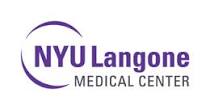Pilot Study of Transcranial Direct Current Stimulation (tDCS)
| Status: | Completed |
|---|---|
| Conditions: | Neurology, Neurology, Multiple Sclerosis |
| Therapuetic Areas: | Neurology, Other |
| Healthy: | No |
| Age Range: | 18 - 70 |
| Updated: | 10/6/2018 |
| Start Date: | April 2016 |
| End Date: | September 30, 2018 |
This study will test the tolerability and preliminary efficacy of transcranial direct current
stimulation (tDCS) combined with a cognitive training program, remotely-delivered using a
telemedicine protocol in 60 adults with multiple sclerosis (MS). The study will evaluate the
efficacy of tDCS to evaluate two of the most debilitating symptoms of MS: cognitive
impairment and fatigue.
stimulation (tDCS) combined with a cognitive training program, remotely-delivered using a
telemedicine protocol in 60 adults with multiple sclerosis (MS). The study will evaluate the
efficacy of tDCS to evaluate two of the most debilitating symptoms of MS: cognitive
impairment and fatigue.
Transcranial direct current stimulation (tDCS) has been demonstrated to:
1. successfully treat fatigue in adults with MS, and
2. improve learning ability and other aspects of cognitive functioning in healthy controls
and in participants with a range of medical disorders.
Cognitive impairment in MS remains a major treatment challenge and a trial of tDCS combined
with a cognitive training program to treat MS-related cognitive impairment is warranted.
However, one barrier for the study of tDCS has been the need for the participant to travel to
the study site for each tDCS administration. To address this issue, the biomedical company
Soterix, has recently designed a remote-delivery tDCS device designed for use in clinical
trials. Therefore, the primary goal of this study is to establish a protocol for
remotely-supervised in-home tDCS delivery for studies with MS participants. Established
safety and feasibility of remotely-supervised tDCS delivery will facilitate the next steps of
larger controlled trials, in both MS as well as other conditions, to determine efficacy and
appropriate real-world use.
1. successfully treat fatigue in adults with MS, and
2. improve learning ability and other aspects of cognitive functioning in healthy controls
and in participants with a range of medical disorders.
Cognitive impairment in MS remains a major treatment challenge and a trial of tDCS combined
with a cognitive training program to treat MS-related cognitive impairment is warranted.
However, one barrier for the study of tDCS has been the need for the participant to travel to
the study site for each tDCS administration. To address this issue, the biomedical company
Soterix, has recently designed a remote-delivery tDCS device designed for use in clinical
trials. Therefore, the primary goal of this study is to establish a protocol for
remotely-supervised in-home tDCS delivery for studies with MS participants. Established
safety and feasibility of remotely-supervised tDCS delivery will facilitate the next steps of
larger controlled trials, in both MS as well as other conditions, to determine efficacy and
appropriate real-world use.
Inclusion Criteria:
- Ages 18-70
- Definite MS diagnosis, all subtypes [95]
- MS-related changes in cognitive functioning
- A score of 6.5 or lesson the Expanded
- Disability Status Scale (EDSS) OR more than 6.5 with proxy
- Has stable and continuous access to internet service at home compatible with the study
laptop (Wi-Fi or ethernet cable)
- Adequate internet capacity for remote monitoring, as tested by
http://www.speedtest.net/)
- Adequate home facilities (enough space, access to quiet and distraction free area)
- Able to commit to the two-week period of training sessions with baseline and follow-up
visits.
- Able to understand the informed consent process and provide consent to participate in
the study
Exclusion Criteria:
- Visual, auditory and motor deficits that would prevent full ability to understand
study instructions or operate the tDCS device or study laptop, as judged by treating
neurologist or study staff
- Relapse or steroid use in previous month
- History of mental retardation, pervasive developmental disorder or other neurological
condition associated with cognitive impairment
- Primary psychiatric disorder that would influence ability to participate
- History of seizures or seizure disorder
- Current chronic headaches or migraines. In addition, if a subject has had a change in
the rate or severity of head pressure, headache, or migraine in the past two weeks,
they are excluded.
- History of head trauma (e.g., head injury, brain surgery) or medical device implanted
in the head (such as Deep Brain Stimulator) or in the neck (such as a Vagus Nerve
Stimulator)
- Any skin disorder/sensitive skin (e.g., eczema, severe rashes), blisters, open wounds,
burn including sunburns, cuts or irritation, or other skin defects which compromise
the integrity of the skin at or near stimulation locations (where electrodes are
placed)
- Treatment for a communicable skin disorder currently or over the past 12 months
We found this trial at
1
site
550 1st Ave
New York, New York 10016
New York, New York 10016
(212) 263-7300

Principal Investigator: Eric Strauss, MD
New York University Langone Medical Center NYU NYU Langone Medical Center, a world-class, patient-centered, integrated,...
Click here to add this to my saved trials